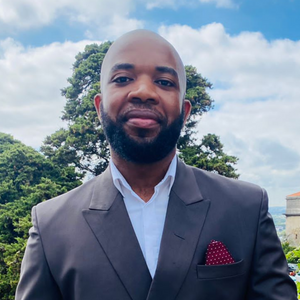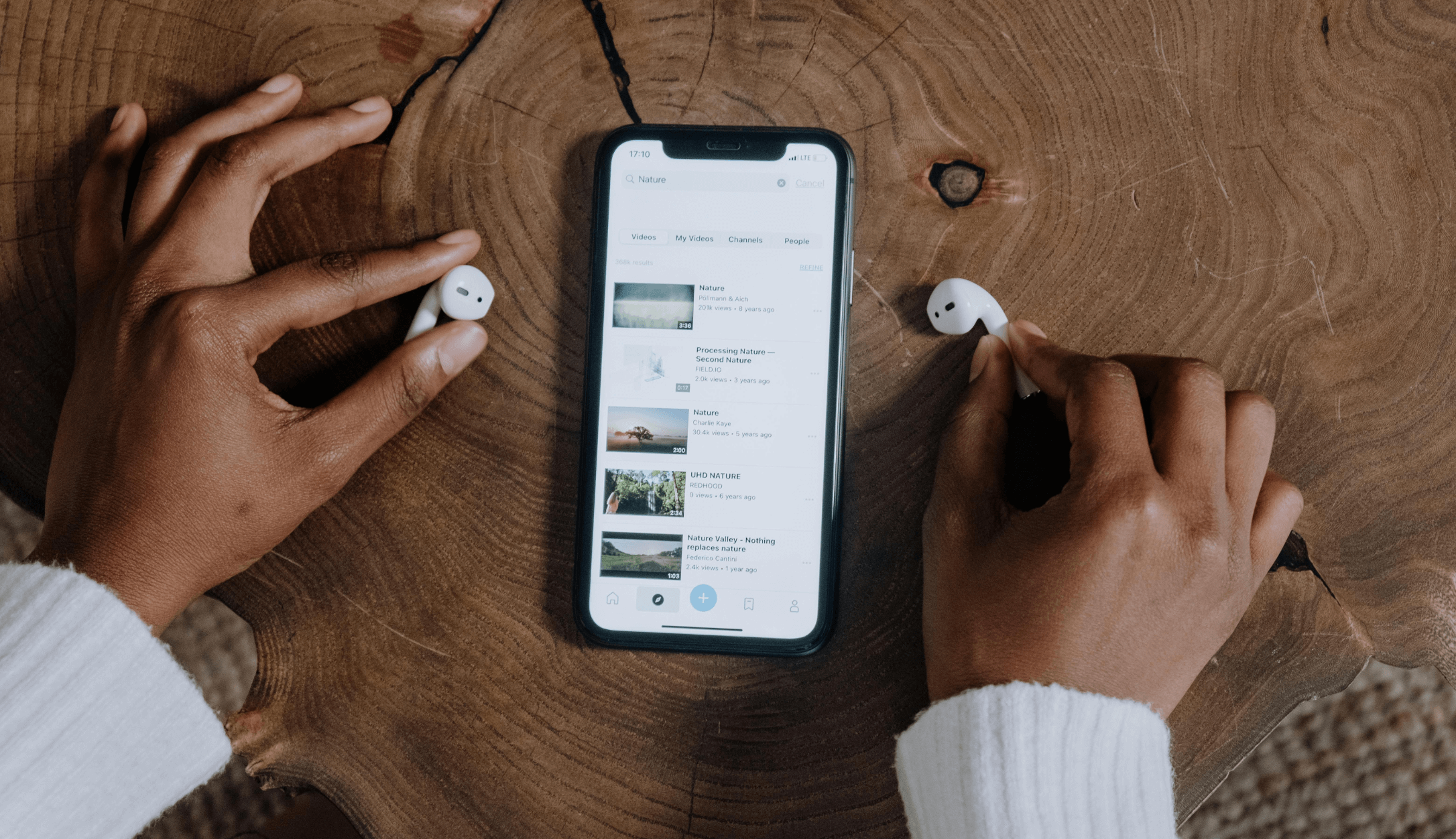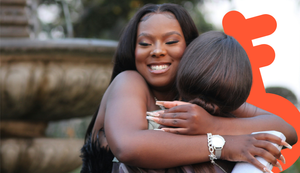Finding investing advice and resources that resonate with you is like trying to find a good pizza restaurant in a new town: you might have to taste a few slices before you find the one that really satisfies you. But once you discover the ones that align with your financial goals and risk tolerance, you keep going back for more.
After checking out many resources on this topic, I've found seven that really resonated with me in understanding investing and managing my money better:
- YouTube Channel: Financial Bunny
- Blog: Francly Speaking
- Book: The Psychology of Money by Morgan Housel
- YouTube Channel: The Ramsey Show
- Book: Capitalist Nigger by Chika Onyeani
- X Handle: Sam Parr
- Book: Rich Dad, Poor Dad by Robert Kiyosaki
1. YouTube Channel: Financial Bunny
Fun fact: the first time I ever heard about Franc was through Nicolette Mashile’s YouTube channel, Financial Bunny, in late 2021. I still remember watching a video where she discussed the easiest platforms for young people to invest their money. It’s remarkable how things have come full circle, from discovering Franc on Nicolette’s channel to now contributing to Franc’s blog and empowering other young people to learn more about personal finance and investing.
One of the remarkable aspects of Nicolette’s content is her simple approach to explaining complex concepts, making them accessible to the average person starting from level 0. She avoids unnecessary jargon and speaks directly to her audience's level of understanding.
2. Blog: Francly Speaking
I came across the Francly Speaking Blog after starting my investment journey with Franc back in April 2022. Initially, I wasn’t even aware of the blog’s existence; I had simply invested through the app without further exploration. About a week later, I received an email entitled “Can I trust financial advice?,” which caught my attention. I was like “What? So, these guys read minds, too?” The article arrived at the perfect time for me as I was getting more serious about investments and personal finance.
Since then, I've consumed many blog posts on the platform. From holiday planning tips to preparing for parenthood and budgeting for ‘Janu-worry’, the Francly Speaking Blog has become my go-to resource for all things personal finance.
3. Book: The Psychology of Money by Morgan Housel
I bought this book in 2022 as a birthday treat for myself. It's brimming with invaluable lessons, but the one that stood out to me was realising the emotional connection to money. Your upbringing, experiences, and emotions shape your financial choices. The good news is that regardless of your current relationship with money, it can always improve if you're honest with yourself and willing to change.
Another key insight from the book is that successful investing isn't about timing the market but rather, time in the market. Starting to invest at a young age yields greater compound interest than starting later in life.
The book also cautions against 'lifestyle inflation': the tendency to increase spending as income rises. Instead, it advises prioritising saving and investing a portion of any income increase to secure your financial future.
4. YouTube Channel: The Ramsey Show
This is without a doubt my favourite show on YouTube. I've learned more about personal finance from this channel than from any other source. Dave, the host, is like the 'no-nonsense granddad' – he tells it like it is. He receives calls from people who have often made or are about to make unwise financial decisions, and he advises them on how to navigate their situations or why they should reconsider their choices.
Not only does Dave have decades of experience counselling people on money matters, but he once filed for bankruptcy himself after borrowing beyond his means. This background lends credibility to his advice, which always seems to stem from a place of both empathy and sympathy, as he's walked in the callers' shoes.
My key takeaway from his show is that money should bring peace of mind, not create further problems by trying to maintain a lifestyle beyond your means. His favourite line regarding investing is 'Just put the money away and leave it there'.
5. Book: Capitalist Nigger by Chika Onyeani
This is one of the most controversial books I have ever read; the title alone tells you it’s not for the faint of heart. After reading it, I didn’t know whether to be angry at the author or to thank him for giving me a fresh perspective. I chose the latter. I genuinely wouldn’t recommend any black person who easily takes offence read this book. It can be quite triggering.
Chika shoots from the hip; he doesn’t gloss over anything. I appreciate that even though he discusses socio-economic issues in the US, they were also relatable to the average black person in South Africa. I admire the fact that the author doesn’t deny the systemic hurdles that have made it hard for black people to progress. However, he constantly questions what we are going to gain, especially from an economic point of view, by constantly dwelling on a past we cannot change.
Another key takeaway from the book is the importance of recognising and celebrating achievements in our communities and supporting each other in the pursuit of success. The author also emphasizes the importance of self-reliance, entrepreneurship, and investment in creating wealth and prosperity within previously disadvantaged communities.
This book is the main reason I am personally motivated to constantly learn and share about personal finance, so that we all grow and make better financial decisions for ourselves and hopefully pass those lessons to future generations.
6. X/Twitter Handle: Sam Parr
There are legends, and then there’s Sam Parr. I have mad respect for this guy! Sam founded one of the earliest ‘purely email businesses’ called The Hustle in 2016. Their daily content was so funny that I couldn’t wait for the next day’s article. You felt like you were just chatting with a friend; there was no fancy jargon, and you laughed as you read the article. Who wouldn’t want that?
5 years later, he sold The Hustle for over $20 million. Talk about striking gold and a legitimate ‘get rich quick scheme.’ I love Sam’s content because he’s passionate about researching ideas. He digs into quirky yet somewhat small million-dollar revenue businesses and shares with viewers how those businesses position themselves differently in the marketplace and what ideas viewers can take from them to either start or tweak their own businesses.
Sam also co-hosts the My First Million podcast on YouTube alongside his business partner Shaan Puri. Together, they brainstorm business ideas, interview entrepreneurs and investors, and discuss success stories, failures, and insights. Most of Sam’s content focuses on being on the bleeding edge of first investing in information and research before making entrepreneurial and investment decisions.
7. Book: Rich Dad, Poor Dad by Robert Kiyosaki
I stumbled upon this book during a particularly challenging period in my life. It was my first year in Cape Town, residing in a run-down flat in Mowbray, and I had absolutely no idea how to manage money, let alone invest it. I often spent my money recklessly, leaving me with no choice but to at times sustain myself on Morvite for breakfast, lunch, and dinner, knowing I couldn't ask for money at home twice in the same month. One of the key lessons I gathered from Robert's book on investing was the significance of prioritising self-investment, starting early, and embracing diversification. A quote from the book has remained stamped in my memory:
“When you are young, you must work to learn, not to earn.”
After reading the book, I tried different jobs. Instead of worrying about how much money I made, I instead focused on what I could learn from each job. I even tried a tough commission-based sales job. It was really hard, but because of the book, I continue to draw invaluable lessons from that experience.
Did any of the resources in this article strike a chord with you?
Reflect on your own financial journey and consider the resources that have made the greatest impact. Are you sharing these valuable resources with those around you?
Start the conversation and empower others to take control of their financial future so that we all win.








![The Guide To Provisional Tax In South Africa [+ downloadable provisional tax calculator]](/blog/content/images/size/w600/2025/09/calculating-your-provisional-tax.png)

